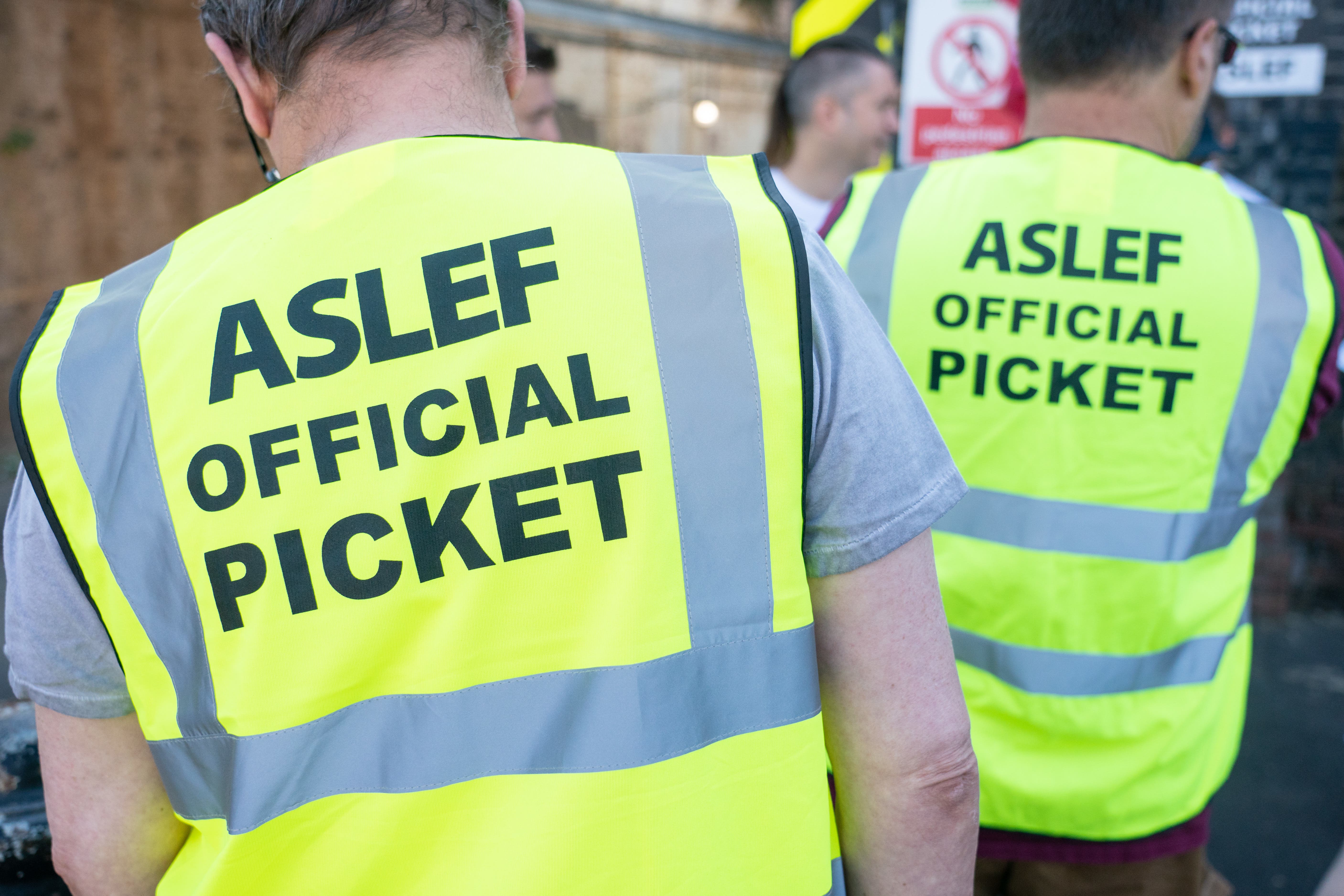Minister claims it is ‘up to the unions’ if northern train services improve
Transport Secretary Mark Harper said he wants to end rest-day working on the railways.

Your support helps us to tell the story
From reproductive rights to climate change to Big Tech, The Independent is on the ground when the story is developing. Whether it's investigating the financials of Elon Musk's pro-Trump PAC or producing our latest documentary, 'The A Word', which shines a light on the American women fighting for reproductive rights, we know how important it is to parse out the facts from the messaging.
At such a critical moment in US history, we need reporters on the ground. Your donation allows us to keep sending journalists to speak to both sides of the story.
The Independent is trusted by Americans across the entire political spectrum. And unlike many other quality news outlets, we choose not to lock Americans out of our reporting and analysis with paywalls. We believe quality journalism should be available to everyone, paid for by those who can afford it.
Your support makes all the difference.It is “up to the unions to decide” if they want train services in northern England to improve, according to Transport Secretary Mark Harper.
The Cabinet minister claimed he gave TransPennine Express and Northern “the scope they need to put a meaningful and generous” offer on rest-day working to drivers’ union Aslef.
Thousands of services have been cancelled across the region at short notice in recent months.
Much of the disruption has been caused by workers no longer volunteering to do paid shifts on their rest days, amid an industrial relations crisis across the sector.
In a statement to Parliament, Mr Harper wrote: “Aslef need to enter negotiations and put any new deal to its members and, if accepted, do all it can to make that deal work.
“TransPennine has made a generous revised offer to Aslef and it was almost immediately rejected without being put to members.
“It is up to the unions to decide if they want to improve services, for the good of passengers and the wider economy in the North.”
Mr Harper said he is in favour of “breaking the railway’s dependence on rest-day working altogether”.
He added: “No modern and successful business relies on the goodwill of its staff to deliver for its customers in the evening and at the weekend.
“I want a railway with rewarding jobs, contracted to deliver every service promised to the public.”
Mr Harper published the statement as passengers faced another day of services across Britain being decimated due to a strike by thousands of members of the Rail, Maritime and Transport union (RMT) at Network Rail and train companies.
Anthony Smith, chief executive of watchdog Transport Focus, told the Commons’ Transport Select Committee that long-term disruption in the North has been caused by a “toxic combination” of problems.
Avanti West Coast has suffered from difficulties training enough drivers and a “quite serious breakdown” in relationships between workers and managers, he said.
Mr Smith described industrial relations at TransPennine Express as “very corrosive”, telling MPs this has “clearly undermined” the company’s ability to provide a reliable service.
Avanti West Coast’s decision to cut its schedules in August to limit short-notice cancellations had the “rather unpleasant effect” of making travel more expensive for many passengers as access to cheaper tickets bought in advance was limited, he explained.
Lord McLoughlin, who chairs Transport for the North, which advises the Government on the region’s transport needs, told the committee that reliability is “the greatest problem the companies have to address”.
He continued: “There has been a total let-down with unreliable services, not being able to get tickets, not knowing whether services are going to run, and also getting that information out.”
Richard Scott, director of corporate affairs at the West Coast Partnership – which includes Avanti West Coast – said the operator’s introduction of a new timetable on Sunday featured a 40% uplift in services.
He told MPs: “That is what everyone has been working (towards) over the recent months.
“That is the absolute cornerstone of getting things back on track and providing a reliable, sustainable, robust service.”
He added: “All of our principal routes are having more services now – strikes aside – than they would have had (before) the problems in the summer.”
TransPennine Express managing director Matthew Golton apologised on behalf of the company as “we’ve let customers and communities down with the service delivery that we’ve had”.
He insisted there is a “very strong pipeline” of trainee drivers, but a return to rest-day working would “make a material difference to our progress”.
He added: “What we have to do over the next few months is get this timetable performing more reliably and make a significant inroad into the number of cancellations.
“That’s what we’re going to do.”
Nick Donovan, managing director at Northern, told the committee that staff sickness and absence is responsible for around 70% of the operator’s cancellations caused by internal factors.
He said: “We’re putting a focus on that.
“That’s not an immediate fix. Our sickness levels are running at about double of normal rates at the moment, and in fact some depots are up at 14% or so.
“We’re working through that. I can’t give a precise forecast on when that will be dealt with.”